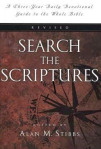Study 14 From The Book of Numbers is: Numbers 20
- Notice Moses and Aaron’s reaction to the people’s discontent (verse 6) . What did God desire to achieve through this incident? See verses 6, 8, 12. How did Moses and Aaron fail, and in what terms is their failure described? See verses 10, 12, 24; Cf. 27:14; Dt. 32:51
- God’s anger with Moses and Aaron may at first seem to us out of proportion to the extent of their failure. What ought we to learn from this? What ought we also to learn from the fact that even ‘meek’ (12:3) Moses ‘s spoke words that were rash’ (Ps. 106:33)?


